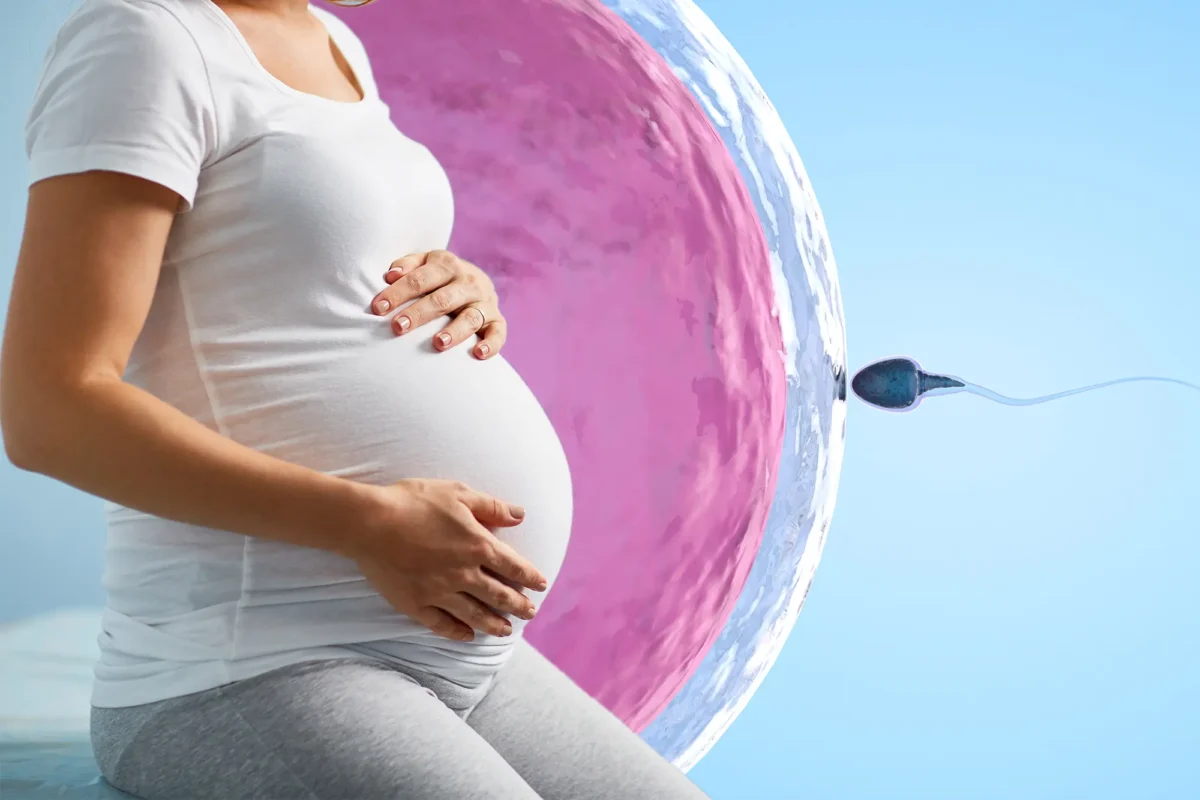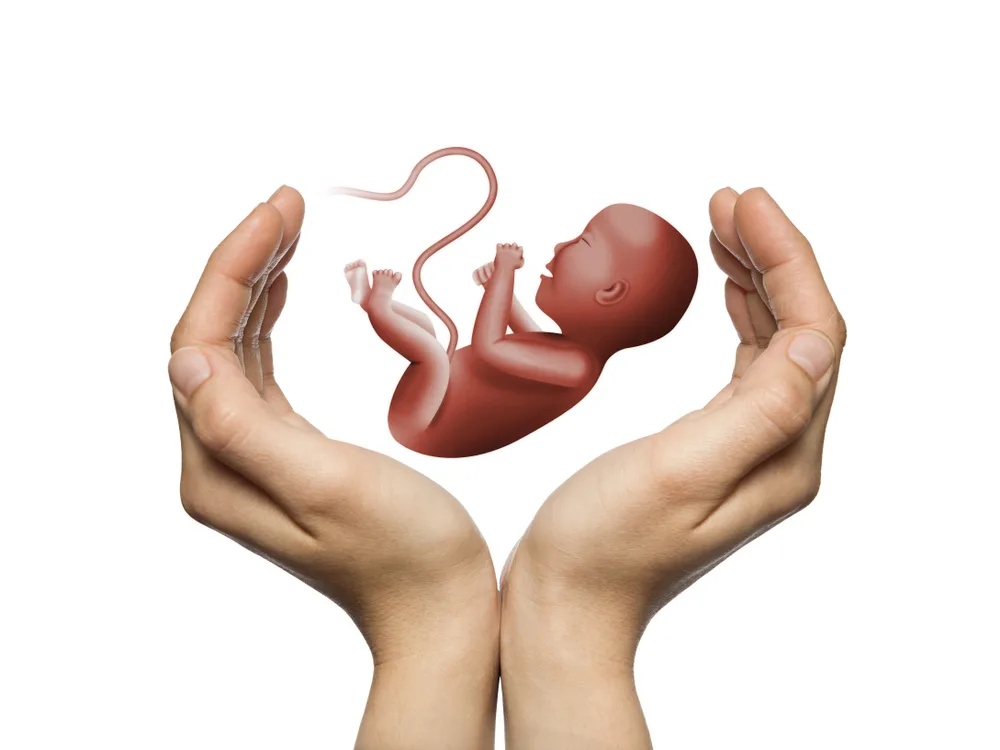Understanding Female Infertility
Female infertility refers to the inability of a woman to conceive after a year of regular unprotected intercourse. It can result from various factors affecting the reproductive system, including ovulation disorders, hormonal imbalances, structural abnormalities in the reproductive organs, and age-related declines in fertility. Understanding the complex interplay of these factors is crucial in diagnosing and treating female infertility effectively. Factors such as lifestyle choices, underlying medical conditions, genetic factors, and environmental influences also play roles in fertility. A thorough understanding of these aspects enables healthcare providers like Dr. Anjana Jain to tailor treatments that address the specific causes of infertility in each patient.

What are some possible causes of female infertility?
- Ovulation Disorders: Irregular or absent ovulation due to hormonal imbalances, polycystic ovary syndrome (PCOS), thyroid disorders, or stress.
- Structural Abnormalities: Anatomical issues such as blocked fallopian tubes, uterine fibroids, or adhesions that hinder the natural process of conception.
- Endometriosis: Growth of uterine tissue outside the uterus, affecting fertility by causing inflammation and scarring.
- Age-related Decline: Decreased ovarian reserve and quality of eggs as women age, impacting fertility potential.
- Genetic Factors: Inherited conditions affecting reproductive health, such as chromosomal abnormalities or genetic mutations.
- Lifestyle Factors: Smoking, excessive alcohol consumption, obesity, and poor nutrition can contribute to infertility.
- Environmental Influences: Exposure to toxins, pollutants, and certain medications can affect fertility levels.
Understanding these diverse causes helps in diagnosing and addressing the specific issues leading to female infertility.
Diagnostic Tests for Female Infertility
- Hormone Testing: Evaluates levels of key hormones like estrogen, progesterone, follicle-stimulating hormone (FSH), luteinizing hormone (LH), and thyroid hormones to assess ovarian function and hormonal balance.
- Ovulation Monitoring: Tracks ovulation through methods like basal body temperature charting, ovulation predictor kits, and ultrasound monitoring to determine the timing and regularity of ovulation.
- Imaging Studies: Utilizes ultrasound, hysterosalpingography (HSG), or magnetic resonance imaging (MRI) to assess the structure and condition of the reproductive organs, including the uterus, fallopian tubes, and ovaries.
- Ovarian Reserve Testing: Measures ovarian reserve through tests like antral follicle count (AFC), anti-Müllerian hormone (AMH) levels, and follicle-stimulating hormone (FSH) levels to assess egg quantity and quality.
- Genetic Testing: Screens for genetic abnormalities or inherited conditions that may impact fertility or pregnancy outcomes.
- Hysteroscopy/Laparoscopy: Invasive procedures to directly visualize and diagnose intrauterine abnormalities, uterine fibroids, adhesions, endometriosis, or tubal blockages.
These diagnostic tests help identify underlying causes of female infertility, guiding personalized treatment plans for patients.
Treatment Options for Female Infertility
- Counseling and Lifestyle Changes: Involves counseling sessions to address emotional aspects of infertility and lifestyle modifications such as diet, exercise, stress management, and avoidance of harmful habits like smoking and excessive alcohol consumption.
- Medication Management: Prescribes fertility medications like clomiphene citrate, letrozole, or gonadotropins to stimulate ovulation or regulate hormonal imbalances.
- Non-IVF Procedures: Includes intrauterine insemination (IUI) to place sperm directly into the uterus during ovulation, enhancing the chances of conception.
- Surgical Interventions: May recommend minimally invasive surgeries like laparoscopy or hysteroscopy to correct structural abnormalities, remove uterine fibroids or cysts, clear blocked fallopian tubes, or treat endometriosis.
These treatment options are tailored to each patient’s specific infertility factors, aiming to optimize fertility and achieve successful conception.
Benefit of Non-IVF approaches
- Less Invasive: Non-IVF approaches often involve less invasive procedures like fertility medication or intrauterine insemination (IUI), reducing physical discomfort and recovery time compared to IVF.
- Lower Cost: Non-IVF treatments are generally more affordable than in vitro fertilization (IVF), making them accessible to a wider range of patients.
- Reduced Emotional Stress: The less invasive nature and lower cost of non-IVF approaches can alleviate emotional stress associated with fertility treatments, promoting a more positive experience for patients.
- Natural Conception: Non-IVF methods aim to facilitate natural conception by addressing underlying fertility factors, leading to a higher likelihood of achieving pregnancy without assisted reproductive technologies.
-
Customized Treatment: Non-IVF approaches allow for personalized treatment plans tailored to each patient’s unique infertility challenges, optimizing outcomes and patient satisfaction.

Dr. Anjana Jain’s Approach to Female Infertility
Dr. Anjana Jain’s approach to female infertility is characterized by personalized and holistic care, focusing on addressing the root causes of infertility while prioritizing patient comfort and well-being. Her approach encompasses:
- Personalized Care: Tailoring treatment plans to each patient’s specific infertility factors, ensuring individualized and effective interventions.
- Avoiding Rigorous IVF Procedures: Emphasizing non-IVF approaches such as counseling, lifestyle modifications, medication management, and non-invasive procedures like IUI whenever possible to spare patients from the physical and emotional burdens of IVF.
-
Success Stories/Testimonials: Showcasing positive outcomes and patient experiences to inspire confidence and trust in Dr. Jain’s expertise and approach to infertility care.
Why Choose Dr. Anjana Jain for Female Infertility Care
Choosing Dr. Anjana Jain for female infertility care offers several compelling reasons:
- Expertise and Experience: With 22 years of experience in Obstetrics and Gynaecology, Dr. Jain brings a wealth of expertise in diagnosing and treating female infertility.
- Personalized Approach: Dr. Jain’s personalized approach to infertility care ensures that each patient receives tailored treatments based on their unique needs and challenges.
- Non-IVF Focus: Her emphasis on non-IVF approaches such as counseling, lifestyle changes, and medication management offers patients effective alternatives to rigorous IVF procedures.
-
Patient-Centric Care: Dr. Jain’s compassionate and supportive demeanor creates a comfortable and reassuring environment for patients, making their infertility journey more manageable and empowering.
FAQs About Female Infertility





❓ What is female infertility?
Female infertility refers to the inability of a woman to conceive after a year of regular unprotected intercourse.
❓ What are the common causes of female infertility?
Common causes include ovulation disorders, structural abnormalities, endometriosis, age-related decline, genetic factors, lifestyle choices, and environmental influences.
❓ How is female infertility diagnosed?
Diagnosis involves hormone testing, ovulation monitoring, imaging studies, ovarian reserve testing, genetic testing, and sometimes hysteroscopy/laparoscopy.
❓ What are the treatment options for female infertility?
Treatment options include counseling, lifestyle changes, medication management, non-IVF procedures like IUI, and surgical interventions if needed.
❓ How does age impact female fertility?
Age can impact fertility due to decreased ovarian reserve and egg quality.
❓ Can lifestyle factors affect female fertility?
Yes, factors like smoking, alcohol consumption, obesity, and poor nutrition can affect female fertility.
❓ What role does stress play in female infertility?
Stress may contribute to infertility by disrupting hormonal balance and ovulation.
❓ What are the success rates of non-IVF treatments for female infertility?
Non-IVF treatments can have varying success rates depending on the individual’s fertility issues.
❓Are there any natural remedies or supplements that can help improve female fertility?
Certain supplements and lifestyle changes may support fertility, but consult a healthcare provider before trying.
❓ What are the risks associated with fertility medications and procedures?
Risks may include multiple pregnancies, ovarian hyperstimulation syndrome (OHSS), and side effects from medications.
❓ How long does it typically take to conceive with non-IVF treatments?
The time to conceive with non-IVF treatments can vary widely and depends on individual circumstances.
❓ What should I expect during fertility counseling sessions?
Fertility counseling sessions may involve discussing emotional aspects, coping strategies, and treatment options.
❓ Can female infertility be prevented?
Prevention strategies may include maintaining a healthy weight, avoiding smoking and excessive alcohol, managing stress, and regular check-ups.
❓How does Dr. Anjana Jain approach female infertility treatment differently?
Dr. Anjana Jain emphasizes personalized, non-IVF approaches like counseling, lifestyle changes, and medication management to address female infertility.
❓ What should I do if I suspect I may have fertility issues?
Consult a healthcare provider for evaluation, testing, and personalized guidance if you suspect fertility issues.





